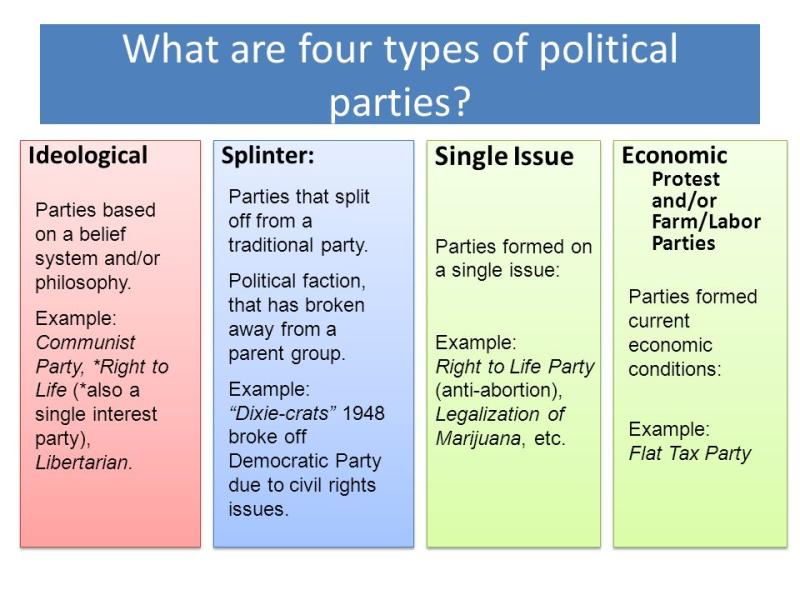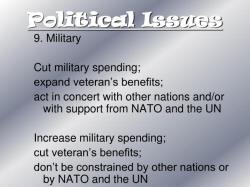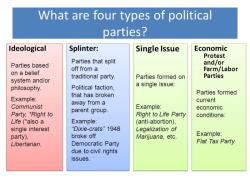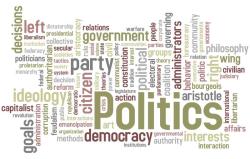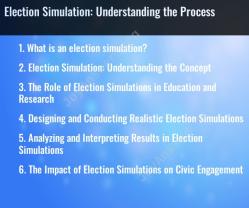What are political problems?
Political problems refer to issues, challenges, or conflicts within the realm of politics that affect the functioning of governments, societies, or international relations. These problems can arise at various levels, from local governance to global geopolitics. Political problems often involve differing interests, values, and ideologies, and they may manifest in various forms. Here are some common types of political problems:
**1. Corruption:
- Abuse of Power: Corruption involves the misuse of public office for personal gain. It undermines trust in institutions and can lead to economic inefficiency and inequality.
**2. Political Instability:
- Government Changes: Frequent changes in government leadership or instability can hinder effective governance and create uncertainty in a society.
**3. Human Rights Violations:
- Civil Liberties: Violations of human rights, including restrictions on freedom of speech, assembly, and other civil liberties, can lead to social unrest and international criticism.
**4. Economic Inequality:
- Distribution of Resources: Disparities in wealth and access to resources can lead to social unrest and pose challenges to the legitimacy of political systems.
**5. Social Justice Issues:
- Discrimination: Political problems often include issues related to discrimination based on race, gender, religion, or other factors. Advocacy for social justice becomes a key aspect.
**6. Political Polarization:
- Divided Societies: Growing divisions and polarization between different political and social groups can hinder effective governance and compromise.
**7. Corrupt Electoral Practices:
- Election Fraud: Problems in electoral processes, such as fraud or voter suppression, can undermine the democratic principles of representation and legitimacy.
**8. Foreign Policy Challenges:
- International Relations: Issues in international relations, such as conflicts, trade disputes, or diplomatic tensions, can pose challenges for governments and impact global stability.
**9. Environmental Concerns:
- Climate Change: Policies related to environmental protection and responses to climate change can be sources of political disagreement and contention.
**10. National Security Threats:
- Terrorism: The threat of terrorism and responses to it can raise complex political challenges related to security, civil liberties, and international cooperation.
**11. Immigration Issues:
- Border Control: Disputes over immigration policies, border control, and the treatment of migrants can create political tensions and social divisions.
**12. Healthcare and Pandemics:
- Public Health Policies: Political problems can arise from disagreements over healthcare policies, especially in times of pandemics, and how resources are allocated for public health.
**13. Ethical Dilemmas:
- Political Ethics: Ethical concerns related to the conduct of political leaders, government officials, and the decision-making process can lead to public mistrust.
**14. Media and Information Challenges:
- Disinformation: The spread of disinformation and challenges related to media integrity can impact public perception and create political turmoil.
**15. Ineffective Governance:
- Administrative Challenges: Inefficiencies in governance, bureaucratic hurdles, and lack of accountability can contribute to political problems.
Addressing political problems often requires effective governance, open dialogue, compromise, and the engagement of citizens. These issues are complex and interconnected, and finding sustainable solutions often involves a multifaceted approach that considers the diverse interests and perspectives within a society.
Defining political concerns: What are political problems?
Political problems are issues that are considered to be of public importance and that require collective action to resolve. They can be defined as problems that cannot be solved by individuals or small groups acting on their own, and that require the involvement of government or other public institutions.
Political problems can be wide-ranging and complex, and can include issues such as:
- Economic problems: poverty, unemployment, inflation, income inequality
- Social problems: crime, education, healthcare, housing, homelessness
- Environmental problems: climate change, pollution, resource depletion
- Foreign policy problems: war, peace, trade, security
Exploring the nature and scope of issues considered political problems
The nature and scope of political problems can vary depending on a number of factors, including the time period, the society in question, and the level of government involved. For example, issues such as poverty and education have been considered political problems for centuries, while issues such as climate change and artificial intelligence are more recent concerns.
The scope of political problems can also vary depending on the level of government involved. For example, local governments are often responsible for issues such as zoning and education, while state governments are often responsible for issues such as healthcare and transportation. The federal government is responsible for issues that have a national or international impact, such as foreign policy and defense.
Insights into the role of politics in addressing and resolving societal challenges
Politics plays a vital role in addressing and resolving societal challenges. By developing and implementing public policies, governments can help to improve the lives of their citizens and make society more just and equitable.
Some examples of how politics has been used to address societal challenges include:
- The creation of social safety net programs to help the poor and vulnerable.
- The passage of civil rights laws to promote equality and justice for all.
- The development of environmental regulations to protect the environment and human health.
- The establishment of international treaties and organizations to promote peace and cooperation among nations.
Of course, politics is not always a silver bullet. There are many factors that can make it difficult to address and resolve societal challenges, such as limited resources, political gridlock, and special interests. However, politics is an essential tool for addressing the complex problems facing our society.
Conclusion
Political problems are complex and challenging, but they are essential to address and resolve in order to build a better future for all. By understanding the nature and scope of political problems, and the role of politics in addressing them, we can become more informed and engaged citizens.
